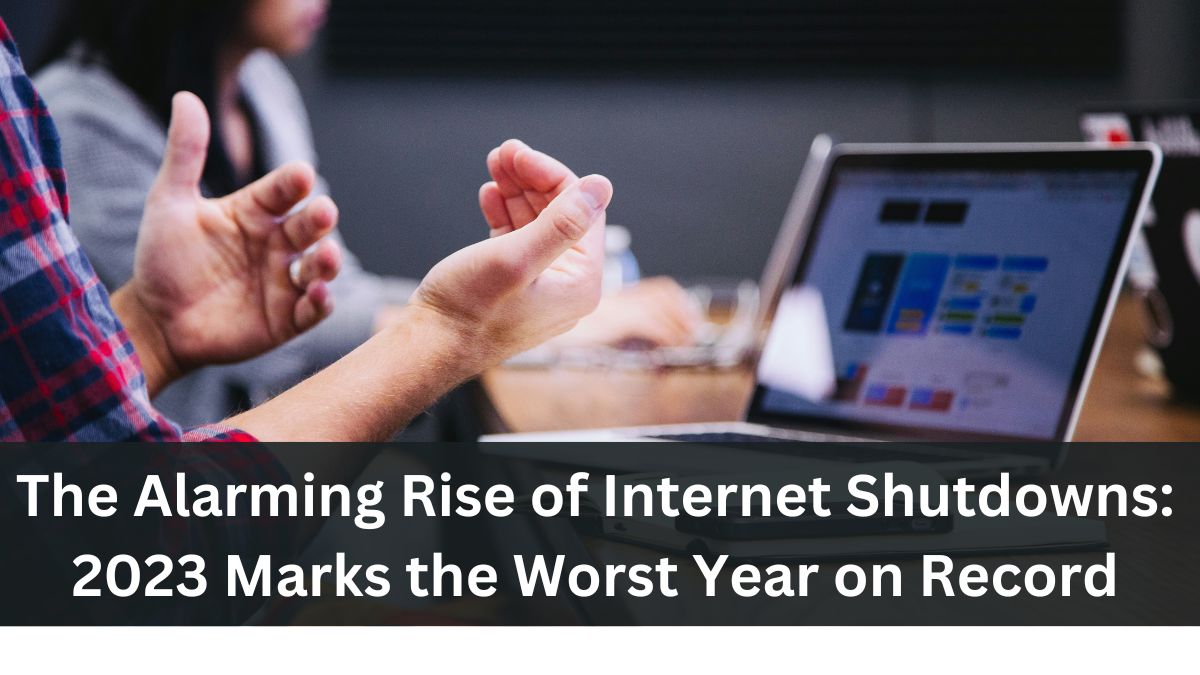Tech
The Alarming Rise of Internet Shutdowns: 2023 Marks the Worst Year on Record

In an increasingly digital world, access to the internet has become a fundamental necessity for communication, commerce, and the free flow of information. However, the year 2023 has seen an unprecedented rise in internet shutdowns across the globe, with devastating consequences for human rights and freedom of expression.
A Record-Breaking Year for Internet Shutdowns
According to the latest report by Access Now, a digital rights watchdog, 2023 saw a staggering 283 internet shutdowns across 39 countries, marking a 41% increase from the previous year and setting a new record for the highest number of shutdowns since the organization began monitoring in 2016.
The report highlights the alarming trend of governments using internet shutdowns as a tool to suppress dissent, control information, and perpetrate human rights abuses. In many cases, these shutdowns occurred in conflict zones and corresponded to acts of violence, leaving vulnerable populations without access to critical information and communication channels.
India Leads the Global List
For the sixth consecutive year, India topped the list of countries with the highest number of internet shutdowns, imposing 116 shutdowns in 2023 alone. The longest shutdown occurred in the state of Manipur, lasting an astonishing 212 days and affecting 3.2 million people.
The Manipur shutdown made it more difficult to document the atrocities committed against minorities during the bloody violence between the Meitei and Kuki-Zo tribes, which included murder, rape, arson, and other gender-based violence. This highlights the dangerous consequences of internet shutdowns, as they can be used to obscure human rights abuses and hinder the documentation and reporting of such atrocities.
Shutdowns in Conflict Zones
Access Now’s report reveals that 173 of the shutdowns in 2023 occurred in conflict zones and corresponded to acts of violence. In the Gaza Strip, the Israeli military used a combination of direct attacks on civilian telecommunications infrastructure, restrictions on access to electricity, and technical disruptions to shut down the internet.
Similarly, in the Amhara region of Ethiopia, security forces imposed a near-total communications blackout to cause terror and mass displacement through the destruction of property and indiscriminate bombing across the region.
The Fallacy of Shutdowns as a Peacekeeping Measure
While some warring political parties claimed to deploy shutdowns during protests and politically unstable events as a peacekeeping measure, the report argues that this is a dangerous fallacy. In 74 instances across nine countries, including Palestine, Myanmar, Sudan, and Ukraine, authorities used this justification to suppress political dissent and control the flow of information.
In India, authorities ordered 65 shutdowns in 2023 in specific attempts to address communal violence. Similarly, Pakistan and Bangladesh imposed seven and three shutdowns, respectively, as a way to suppress political dissent during political rallies and election campaigning.
The Urgent Need for Action
The Access Now report serves as a wake-up call for the international community to take urgent action to permanently end internet shutdowns. The organization emphasizes that all stakeholders across the globe, including governments, civil society, and the private sector, must work together to address this alarming trend.
As Zach Rosson, a data analyst at Access Now, states, “We are at a tipping point… take this as a wake-up call: all stakeholders across the globe — governments, civil society, and the private sector alike — must take urgent action to permanently end internet shutdowns.”
Conclusion
The year 2023 has marked a dark chapter in the history of internet freedom, with a record-breaking number of internet shutdowns that have wreaked havoc on human rights and freedom of expression across the globe. As we move forward, it is crucial that the international community comes together to address this alarming trend and ensure that access to the internet remains a fundamental human right for all.
